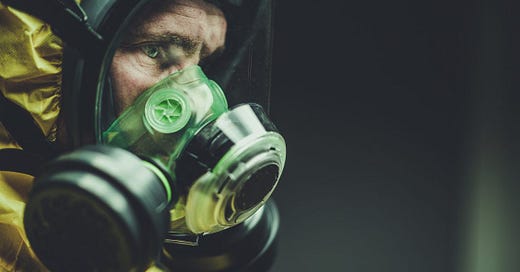100 Days of Government’s Disastrous Lockdown
The lockdown has been, as all government interventions tend to be, worse for the poor.
Written by: Chris Hattingh
Saturday 4 July 2020 marks 100 days since the South African government implemented a lockdown on the country. With the apparent goal of slowing the spread of the COVID-19 virus, the government restricted all manner of normal life and economic activity. With no objective, measurable goal for ending the lockdown ever provided, and with the numbers of infections steadily rising (as was inevitable), South Africans are now expected to live with limited economic freedoms for the foreseeable future.
With the implementation of the lockdown came the summary removal of many everyday freedoms we perhaps took for granted. The formerly simple decision of making the choice to leave your home was taken away. With the apparent goal of fighting the virus, the South African government took on the task of restricting all our lives to unprecedented levels. It also enjoyed much support amongst society when it took these steps. Now that this has happened, it sets a very concerning precedent for government’s conduct in coming years, and indeed for the sanctity of our civil liberties and economic freedoms more broadly.
The lockdown has been, as all government interventions tend to be, worse for the poor. Where some can continue working from home, many South Africans do not have that ability. The overnight closure of many businesses and factories meant that many workers had to stay at home, with little indication of when they could return to work.
With the continuing weakness of the rand, people’s money does not go as far as it used to, and when they choose to invest in long-term savings, the returns are minute at best. The hard lockdown wiped out the meagre savings that some people had managed to accumulate. Now even more have to rely on government aid and grants, and even those will dry up, given the clear drop in tax revenue collection and continually growing government debt.
How is anyone supposed to cope with the feeling of having control over your life ripped from your hands? Over the subsequent months, after the initial hard lockdown, the government has moved from Level 5 to lighter levels of lockdown. The clear arbitrariness and irrationality of many of the regulations, including the ban on the sale of tobacco products and the ban on e-commerce, served to both stifle the little economic activity that should have continued, and chipped away at the goodwill South Africans displayed in supporting the steps taken by government.
We absolutely have to remember the time the government removed many of our freedoms, and did so in a manner that flew directly in the face of transparency, accountability, and clear communication with the citizens it is supposed to represent.
At the moment life feels as though it has been suspended. The many things we could do before COVID-19, we can no longer do – and not by choice. While the virus itself represented a new threat to our lives, we were not afforded the opportunity to adapt. Businesses were simply closed. Citizens were forced to radically alter their everyday decisions and actions. Education, adaptability, and most importantly individual freedom and agency were not the concepts used in the government’s chosen policy path. Brute force and compulsion, often displayed against South Africa’s poorer citizens, was chosen instead. As has so often been the case throughout history.
A mere return to the former ‘normal’ will not suffice. The ‘normal’ we had before lockdown was a low-growth and high-unemployment normal. The economy was battered and bruised before the virus hit our shores. First quarter 2020 GDP declined by 2%, the third successive quarter of decline. That the country is in recession is clear.
The steady downward trend in economic growth, and upward tick in numbers of people who are unemployed, are the concrete examples that show us the country has been on the wrong ideological, and policy-choice, path for many years now.
South Africa needs a breath of fresh air in the second half of this year, in more ways than one. A serious re-evaluation of the state’s role in our lives – and the many ways it can control our decisions and actions – is something this country desperately needs. And even more than that, now is the time to educate ourselves on the crucial role we have to play in holding the government to account. This shift in thinking should result in the right policies for the country, the economic freedom we need to pursue our own goals and dreams.
Our individual rights are not a gift bestowed on us by a benevolent government – our rights are our natural birthright, and we must assert and fight for them. In 100 years’ time, 2020 should be typified not just as the time of COVID-19, but as one of the major turning points in the age-old fight between individualism and always-encroaching statism.
Chris Hattingh is Executive Director at the Centre For Risk Analysis (CRA). With a special focus on trade, investment, and economic matters.




